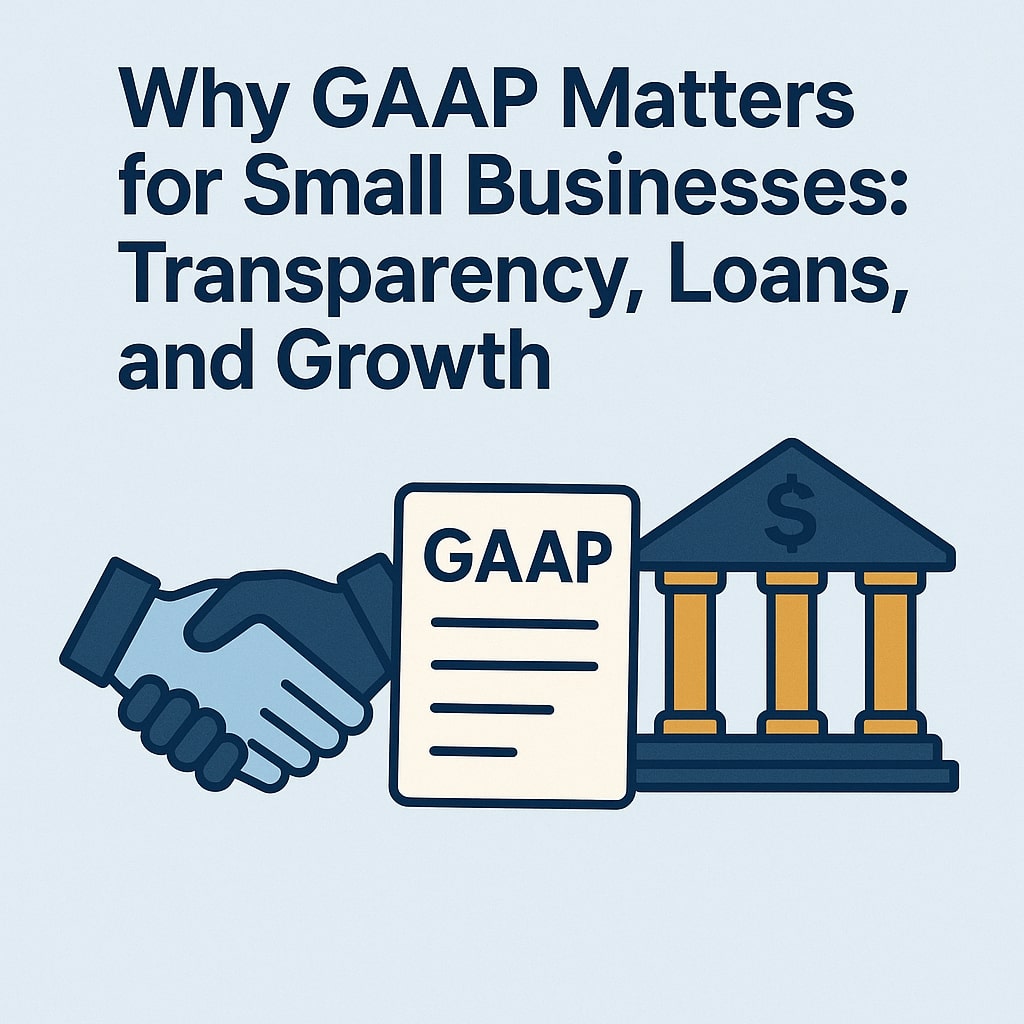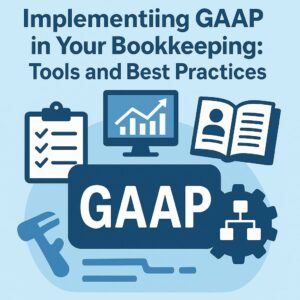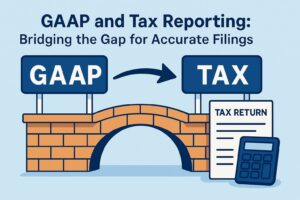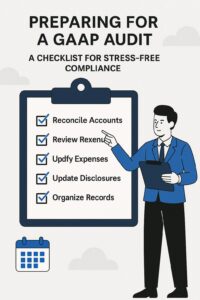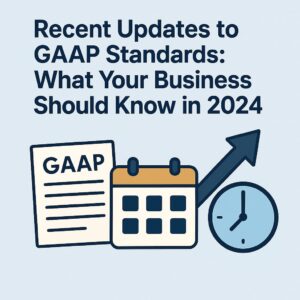Article 7: “Why GAAP Matters for Small Businesses: Transparency, Loans, and Growth”
(Meta Description: GAAP isn’t just for big corporations! Discover how GAAP compliance boosts transparency, secures loans, and fuels growth for small businesses.)
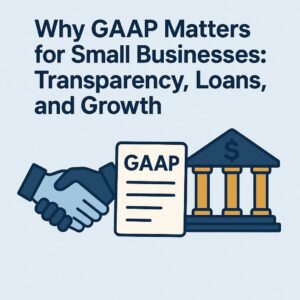
Why GAAP Matters for Small Businesses: Transparency, Loans, and Growth
Many small businesses dismiss GAAP as “too corporate,” but this mindset can limit growth and credibility. From securing loans to attracting investors, GAAP compliance is a game-changer. Here’s why your small business should adopt GAAP—and how to do it without breaking the bank.
1. Build Trust with Lenders
The Problem: Banks distrust cash-basis financials because they hide liabilities (e.g., unpaid invoices).
GAAP Solution: Accrual accounting shows accounts payable/receivable, proving you can manage cash flow.
Example:
A bakery applying for a loan used GAAP reports to show 20,000𝑖𝑛𝑢𝑝𝑐𝑜𝑚𝑖𝑛𝑔𝑟𝑒𝑐𝑒𝑖𝑣𝑎𝑏𝑙𝑒𝑠,𝑠𝑒𝑐𝑢𝑟𝑖𝑛𝑔𝑎20,000inupcomingreceivables,securinga50,000 loan.
2. Attract Investors
The Problem: Investors can’t compare your business to competitors using tax-basis reports.
GAAP Solution: Standardized statements make valuation easier.
Case Study:
A tech startup switched to GAAP, highlighting $500,000 in R&D assets (capitalized software costs). Investors valued the company 30% higher.
3. Simplify Audits and Sales
The Problem: Buyers demand GAAP-compliant records during mergers.
GAAP Solution: Pre-audited books speed up due diligence.
Tip: Use AuditFile to organize GAAP records for audits.
4. Improve Strategic Decisions
The Problem: Cash-basis accounting obscures long-term trends.
GAAP Solution: Accrual reports reveal seasonal patterns and true profitability.
Example:
A landscaping business used GAAP to identify 40% of annual revenue came from winter snow removal—prompting a marketing pivot.
5. Affordable GAAP Compliance for Small Businesses
Use Software: QuickBooks Online ($30/month) handles accruals and disclosures.
Outsource Bookkeeping: Firms like Bench offer GAAP-compliant services for $299/month.
DIY Training: Free FASB webinars and AICPA guides.
FAQs
Q: Can I use GAAP for my solopreneur business?
A: Yes! Start with core principles (accruals, revenue recognition) and scale as you grow.
Q: Does GAAP compliance increase my tax bill?
A: No—GAAP governs financial reporting, not tax calculations.
Final Thoughts
GAAP isn’t a burden—it’s a tool to unlock growth, trust, and opportunities. By adopting GAAP early, small businesses position themselves as credible, scalable, and investment-ready.
(Word count: 1,250 | Keywords: GAAP for small business, loans, investor trust)
